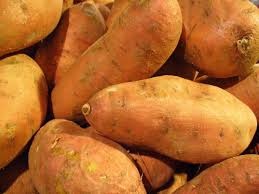Encouraging Sustainable, High-Yield, No-Till Techniques
As Pope Francis has pointed out in his Encyclical,LAUDATO SI’, ON CARE FOR OUR COMMON HOME, it is so important to be stewards of God's creation. While farming is a tremendous gift from God, if done improperly with the wrong fertilizers and techniques, it can be distructive to the planet and rob future generations of the full benefits of this incredible blessing. Among other things, soil can be eroded, there can be insufficient nutrients in the soil and soil treatments can leach into waterways.
One key technique that is proving highly effective in farming is no-till soil management. From a cultural and historic farming perspective, tilling is an entrenched practice in many places. But as it turns out, the latest farming assessments have proven that no-till farming can be both better for the soil and as efficacious in producing a yield. In fact, many progressive farmers are now planting counter-culture, embracing sustainable and more-productive no-till farming techniques.
We are encouraged by the research that indicates no-till farming may indeed be the best strategy for enabling an optimum harvest, for producing a higher income per harvest, and for protecting and restoring the earth.
In places like Haiti, no-till farming techniques can be a critical solution, as the soil has eroded so badly, has been depleted of its nutrients and often experiences run off into the sea.
In this smart, sustainable farming effort, we have specifically tested tilled, minimally tilled and no-till soil proceses.
The following 2015 New York Times article and brief summary substantiates the value of no-till farming.
Excerpts from this NYT article illustrate the value of no-till farming in yield and income -- along with the favorable environmental impacts:
“My goal is to improve my soil so I can grow a better crop so I can make more money,” said Terry McAlister, who farms 6,000 acres of drought-stricken cropland in North Texas. “If I can help the environment in the process, fine, but that’s not my goal.”
For years, Mr. McAlister plowed his fields, working with his father, who began farming in the 1950s. But he began having doubts about the effects of constant tilling on the soil.
“We were farming cotton like the West Texas guys were, just plow, plow, plow,” he said. “And if you got a rain, it just washed it and eroded it. “It made me sick,” he said. “You’re asking yourself, ‘Is there not a better way?’ But at the time, we didn’t know.”
Mr. McAlister said that he switched to no-tillage in 2005, when an agricultural economist calculated that the method offered a $15-per-acre advantage over full tilling.
Now he is a convert. Standing in a field of winter wheat, he pointed proudly at the thick blanket of stubble sprinkled with decaying radishes and turnips. “One of the toughest things about learning to do no-till is having to unlearn all the things that you thought were true,” he said.
Mr. McAlister grows cotton, wheat, hay, grain sorghum and some canola as cash crops, using a GPS-guided no-till seeder that drills through residue, allowing him to plant precisely and effectively.
He credits no-tillage for one of his biggest wheat crops, in 2012, when extreme drought left farmers throughout the region struggling to salvage any harvest. His healthier soil, he believes, made better use of the tiny amount of rain that fell than did the fully tilled fields of other farmers.
The potential for no-till farming to become a mainstream practice is now becomming real.
Interestingly, in 1984, Mother Earth News ran an article entitled "No-Till Farming Pros and Cons," and the conclusion was that no-till farming is likely the better strategy for yield and environmental stewardship. But it also warned that the transition away from tilling is frought with biases that will impede progress -- and that assessment has been validated by the inertia referenced in tne NYT article. (This lengthy and early-stage Mother Earth News article is well worth reading in its entirety. http://www.motherearthnews.com/homesteading-and-livestock/no-till-farming-zmaz84zloeck.aspx?PageId=1)
Global Institute For Transformation (GIFT) and St. Mattew parish believe the Church can help encourage this essential transformation domestically and globally through smart, sustainable parish twinning strategies and Social Justice advocacy.
.
